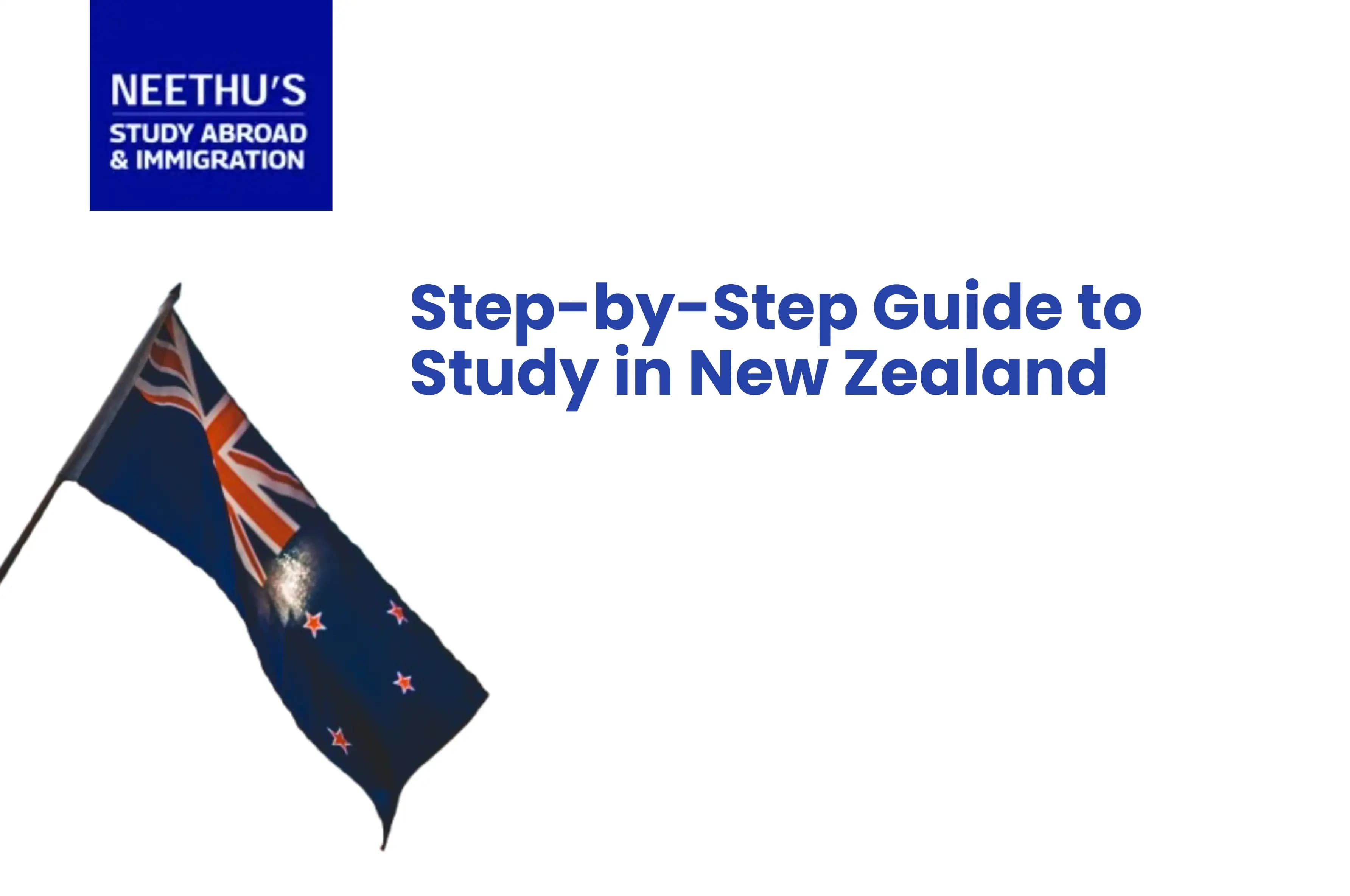Canada Co-Op Programs for Indian Students | Internships, Work Permit & Benefits
_11-10-2025_04-28-42%20PM.webp&w=3840&q=75)
Studying in Canada has always been the ultimate aspiration of Indian students, not only for its quality education but also for the possibility of gaining practical, hands-on training. One of the most appealing aspects of Canadian education is the Co-Op program—a distinct system that makes it possible for students to include paid work experience as part of their academic program. For Indian students opting for higher studies overseas, it is crucial to know about Canada Co-Op programs and internships in Canada to get the maximum return on their investment.
What are Co-Op Programs?
A Co-Op (cooperative education) program is a formal learning system that integrates classroom education with hands-on, paid work experience. In essence, it's an opportunity to work and study in your field of interest at the same time. While on a Co-Op term, students cycle through academic periods and full-time work placements pertinent to their program of interest.
For instance, if you are engineering, you may have one semester taking lectures and another doing a work placement with a company in that area. The work placements are often paid and supervised and allow the student to take what they learn in the classroom into practice.
Canadian Co-Op education is particularly advantageous because it introduces students to the work environment even before they graduate. By the time you finish your degree, you not only have academic credentials—you also have significant Canadian work experience, which provides you with a distinct edge in the job market.
Difference Between Co-Op and Regular Internships
Although Co-Op programs and internships both involve experiential work experience, they are otherwise distinct. A Co-Op program is a part of a degree or diploma and is required to pursue the course. Internships, by contrast, are usually elective and may not necessarily be paid or associated with academic credits.
Co-Op terms are longer, ranging from four to twelve months, and students can have several Co-Op placements during their studies. Internships are shorter in duration, ranging from two to four months. Another major distinction is that Co-Op students remain under constant supervision and assessment by both their employer and the university to ensure that their work experience is in line with their education.
In brief, internships are useful for temporary exposure, but Co-Op programs provide systematic, long-term professional development, thus a more effective instrument of career growth—particularly for Indian students seeking to establish a career in Canada.
Best Universities and Colleges with Co-Op Programs in Canada
Canada has a number of leading colleges and universities with well-developed Co-Op systems. These schools partner with international employers to provide students with valuable and relevant work experience throughout their education.
One of the most highly acclaimed ones is the University of Waterloo, which operates the world's largest Co-Op education program. Waterloo's Co-Op students frequently get to work with leading technology companies such as Google, Microsoft, and Tesla, and thereby gain access to global standards of innovation and collaboration.
The University of British Columbia (UBC) provides excellent Co-Op options in various areas like engineering, business, and science as well. Being a central hub for international industries in Vancouver, students are usually able to find placements with prestigious companies and even overseas branches.
The University of Toronto incorporates Co-Op and experiential learning into numerous programs, particularly business, IT, and health sciences. Students gain experience in professional settings while earning academic credits.
Carleton University in Ottawa is another good option, especially for students with an interest in public policy, journalism, and engineering. Being located in the capital city provides access to placements in government and public administration fields.
For Indian students who need cheap but quality opportunities, Centennial College and Humber College in Ontario are the best choices. They provide Co-Op and internship placements in media, hospitality, technology, and healthcare, which are ideal for Indian students who desire to be practically trained at an affordable price.
These colleges show why co-op education in Canada is regarded as one of the finest methods for readying students for international careers.
Advantages for Indian Students
The advantages of enrolling in Canada Co-Op programs for Indian students extend far beyond a financial reward.
In the first place, they enable students to earn while they learn, so the cost of education is less. The majority of Co-Op jobs are paid, so students can pay for part of their living costs and cut down on financial stress while gaining work experience.
Second, Co-Op programs assist students in establishing strong professional networks. The relationships developed in these placements—whether with supervisors, mentors, or peers—can subsequently result in full-time employment opportunities.
Third, students acquire Canadian work experience, which is a significant factor when seeking employment or even permanent residence. Canadian employers greatly prefer candidates who are familiar with the workplace culture and possess local experience.
Fourth, Co-Op education enables students to transfer theoretical knowledge to practical situations. Rather than learning from textbooks alone, students employ their classroom learning to address real issues confronting companies.
Lastly, Co-Op experience can boost your possibilities of being granted permanent residency (PR) in Canada. Channels such as the Canadian Experience Class (CEC) favor applicants who have had local work experience, and Co-Op placements can be a big help for this.
Work Permit Regulations for Co-Op Students
In order to engage in Co-Op programs, international students require a Co-Op Work Permit on top of their study permit. This work permit is issued to enable students to work full-time throughout their Co-Op period as the placement is part of their curriculum requirement.
To be eligible, the students must possess a valid study permit and have a letter from their institution stating that a work placement is an integral requirement of their course. The Co-Op work permit application may be submitted online via the official IRCC (Immigration, Refugees and Citizenship Canada) website.
The work permit itself usually comes for the same length of time as your study permit. When the term is in session, part-time employment is allowed (20 hours a week max), but during their Co-Op placement, full-time work is allowed without limit.
These work policies make it simpler for Indian students to work while studying in Canada, gain some experience, and still be in compliance with immigration law.
How to Apply for Co-Op Programs
To apply for Co-Op programs in Canada is a matter of a few easy steps. First, when you decide on your program and college, find out if it has a Co-Op option available. There are many dedicated departments for Co-Op in universities that support international students.
Second, ensure that you meet the academic requirements, like having a certain minimum GPA. Once you are eligible, you will be helped in preparing a professional resume and cover letter targeting Co-Op employers.
The majority of institutions have websites where students can browse and apply for open Co-Op opportunities. After applying, you can be scheduled to interview with potential employers. Once hired, you work through the placement, receive credits toward your degree, and typically come back for subsequent Co-Op terms during the latter part of your program.
This disciplined rotation guarantees that by graduation, you are not only academically prepared but professionally seasoned as well.
Conclusion
For Indian students, Co-Op education in Canada is a wonderful experience to acquire global work experience while studying at the higher level. It fills the gap between theoretical learning and practical profession, such that the students graduate with knowledge and marketable skills.
Through a Co-Op-integrated program, Indian students can gain income, establish professional contacts, and increase their opportunities to obtain permanent residency in Canada. It's an arrangement that makes education a career-building experience—one that prepares you for long-term success in Canada and in the world.
Frequently Asked Questions
What is a Co-Op program in Canada?
A Co-Op program integrates academic study with paid work experience in your field of study.
Do Co-Op programs help in PR in Canada?
Yes, Co-Op experience provides valuable Canadian work history that assists PR eligibility.
Are Co-Op programs paid for Indian students?
Yes, a majority of Co-Op placements in Canada are compensated and provide competitive salaries.
Which universities offer the best Co-Op programs in Canada?
It includes top universities such as the University of Waterloo, University of British Columbia, University of Toronto, and Carleton University.






















_03-12-2025_01-17-26%20PM.webp&w=3840&q=75)
_02-12-2025_03-07-49%20PM.webp&w=3840&q=75)

_27-11-2025_04-06-24%20PM.webp&w=3840&q=75)
_25-11-2025_04-38-18%20PM.webp&w=3840&q=75)
_24-11-2025_03-20-26%20PM.webp&w=3840&q=75)
_22-11-2025_12-44-47%20PM.webp&w=3840&q=75)
_21-11-2025_04-17-47%20PM.webp&w=3840&q=75)
_20-11-2025_03-55-26%20PM.webp&w=3840&q=75)
_18-11-2025_04-00-40%20PM.webp&w=3840&q=75)
_15-11-2025_10-48-43%20AM.webp&w=3840&q=75)
%20(1)_14-11-2025_03-52-25%20PM.webp&w=3840&q=75)
_13-11-2025_03-02-38%20PM.webp&w=3840&q=75)
_08-11-2025_04-15-36%20PM.webp&w=3840&q=75)
_05-11-2025_04-01-50%20PM.webp&w=3840&q=75)
_05-11-2025_03-46-26%20PM.webp&w=3840&q=75)
_03-11-2025_03-31-09%20PM.webp&w=3840&q=75)
_04-11-2025_.webp&w=3840&q=75)
_04-11-2025_.webp&w=3840&q=75)
_28-10-2025_04-09-08%20PM.webp&w=3840&q=75)
_24-10-2025_05-10-31%20PM.webp&w=3840&q=75)
_24-10-2025_04-55-51%20PM.webp&w=3840&q=75)
_22-10-2025_04-40-20%20PM.webp&w=3840&q=75)
%20(1)_21-10-2025_03-05-46%20PM.webp&w=3840&q=75)
_21-10-2025_02-43-15%20PM.webp&w=3840&q=75)
_17-10-2025_05-08-52%20PM.webp&w=3840&q=75)
_17-10-2025_04-54-54%20PM.webp&w=3840&q=75)
_15-10-2025_03-46-47%20PM.webp&w=3840&q=75)
_14-10-2025_03-42-40%20PM.webp&w=3840&q=75)
_14-10-2025_03-29-48%20PM.webp&w=3840&q=75)
_13-10-2025_03-48-51%20PM.webp&w=3840&q=75)
%20(1)_09-10-2025_04-12-08%20PM.webp&w=3840&q=75)

_07-10-2025_02-55-25%20PM.webp&w=3840&q=75)
_07-10-2025_02-39-51%20PM.webp&w=3840&q=75)
_06-10-2025_03-42-37%20PM.webp&w=3840&q=75)
_03-10-2025_04-42-59%20PM.webp&w=3840&q=75)
_01-10-2025_11-12-12%20AM.webp&w=3840&q=75)
%20(1)_29-09-2025_02-54-12%20PM.webp&w=3840&q=75)

_26-09-2025_12-14-18%20PM.webp&w=3840&q=75)
_24-09-2025_04-44-26%20PM.webp&w=3840&q=75)
_23-09-2025_04-14-36%20PM.webp&w=3840&q=75)
_22-09-2025_04-08-09%20PM.webp&w=3840&q=75)
_20-09-2025_03-26-03%20PM.webp&w=3840&q=75)
_17-09-2025_04-06-42%20PM.webp&w=3840&q=75)
_15-09-2025_04-43-43%20PM.webp&w=3840&q=75)
_13-09-2025_12-17-49%20PM.webp&w=3840&q=75)
_12-09-2025_04-31-36%20PM.webp&w=3840&q=75)
_12-09-2025_04-17-03%20PM.webp&w=3840&q=75)
_10-09-2025_03-59-59%20PM.webp&w=3840&q=75)
_09-09-2025_04-11-16%20PM.webp&w=3840&q=75)
_09-09-2025_03-53-52%20PM.webp&w=3840&q=75)




















































_12-06-2025_03-40-35%20PM.webp&w=3840&q=75)

